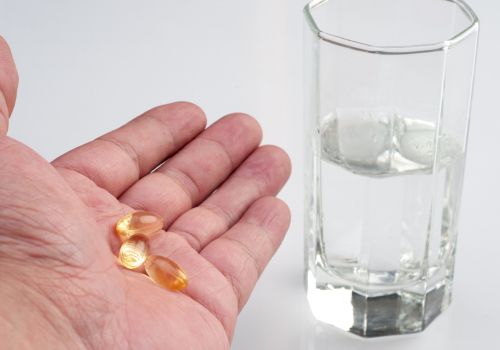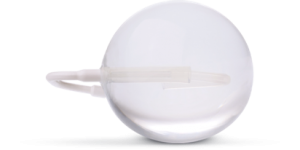Bariatric surgeries represent some of the most effective (and potentially permanent) weight loss solutions for those who might otherwise find it difficult to achieve a target body mass index. However, nutritional deficiencies can be a very real concern and this is the reason why bariatric vitamins are often recommended.
It can nonetheless be difficult to know where to begin. What vitamins do bariatric patients need? What is the difference between bariatric vitamins and regular vitamins? What specific purposes are these substances intended to serve? These are some of the topic that the team at Spatz3 will address. We will then conclude by discussing potential alternatives to bariatric surgery and the advantages that these techniques can offer.
Long-Term Health Complications of Weight Loss Surgery
Although this type of surgery can indeed by highly effective, it is not without its fair share of potential long-term risks. From a purely digestive standpoint, these can include issues such as nausea, vomiting and a condition known as dumping syndrome. Others may instead physically manifest themselves. Here are some examples:
- Blood clots.
- Bowel obstructions.
- Gallstones.
- Hernias.
- Post-surgical infections.
- Malnutrition.
We will be primarily focusing upon malnutrition for the sake of this article. So, why is it important for bariatric patients to obtain the proper vitamin and minerals following any type of procedure and what nutrients are the most essential?

What Vitamins Should Bariatric Patients Take?
The good news is that users are likely to already be familiar with many of the bariatric vitamins listed below. It is nonetheless important to highlight some of the most relevant as well as the metabolic role that each will play.
Vitamin B12
A previous article written by the team at Spatz3 demonstrated how vitamin B12 can play a role in weight loss. However, this substance is just as important in regard to post-bariatric nutrition. Vitamin B12 plays a crucial role in the health of nerve cells as well as the entire circulatory system. As the body may have difficulty absorbing vitamin B12 following a procedure, supplements are often warranted.
Iron
Iron is a mineral that the body can find difficult to absorb under normal circumstances. This is even more relevant when discussing the needs of bariatric patients. Those who are unable to obtain adequate amounts of iron may eventually begin to experience the symptoms associated with anaemia (such as brittle nails, unexplained bruising hair loss, and general feelings of lethargy).
Vitamin D
Vitamin D is responsible for a plethora of metabolic processes including preventing the growth of pre-cancerous cells, protecting against infections, reducing the effects of chronic inflammation, and supporting bone health. Interestingly enough, vitamin D may also help the body to burn visceral fat (fat within the abdominal cavity). Once again, vitamin D supplementation may be required in order to obtain the proper amounts of this nutrient (the body is unable to produce vitamin D and it therefore needs to be obtained from external sources).
Zinc
This mineral plays a pivotal role in many metabolic processes and we would eventually perish without its existence. Zinc is responsible for cellular growth, the synthesis (production) of DNA, ensuring a strong immune system, fighting off infections, and reproduction. The issue here is that many individuals only receive zinc in trace amounts; especially after a bariatric procedure has been completed. It therefore may be better to take zinc in the form of a supplement.
Magnesium
Magnesium is yet another nutrient that they body needs to maintain homeostasis. While you can read about its role in weight loss here, this mineral is vital for other reasons. Magnesium provides the body with a readily available source of energy and it is heavily involved within numerous biochemical reactions. Other roles include reducing emotional stress and promoting healthy sleeping patterns (both key components in long-term weight loss). Bariatric patients will sometimes require magnesium supplements if they are unable to receive adequate amounts due to a restricted caloric intake.

FAQS
Now that we have reviewed some of the most consequential bariatric vitamins, it is a good idea to move on by addressing a handful of common questions.
Can Anyone Take Bariatric Vitamins?
In terms of bariatric vitamins vs regular vitamins, the only difference involves the reasons why these substances are taken. Although “bariatric vitamins” are often associated with nutrients needed after a procedure has been completed, the fact of the matter is that these substances are required by anyone if they wish to achieve a healthy and balanced lifestyle. The main issue involves whether or not there may be an increased need for a specific substance. For instance, some women are at a higher risk of developing anaemia once they enter menopause. Iron may therefore be required even if they have not undergone any type of bariatric surgery.
Can You Take Bariatric Vitamins Without Surgery?
There is nothing wrong with including these vitamins and minerals within a well-rounded supplementation regimen. Although the consequences of not taking vitamins after gastric bypass procedures tend to be highlighted to a greater degree, many individuals will benefit from increased levels of nutrients such as zinc, magnesium and vitamin D. It is nonetheless important to remember that the proper dosages must be followed, as the body is only able to absorb specific amounts at any given time. We therefore recommend speaking with your doctor or a qualified nutritionist if you would like to learn more.
How Long to Take Vitamins After Bariatric Surgery
It is once again important to mention the permanent nature of bariatric surgery. Once your digestive system has been modified in such a manner, it will never return to its previous state. This is why you will need to continue taking the substances above for the rest of your life. Most experts recommend that these should be included within your daily diet once you have begun consuming blended foods following a treatment. You might otherwise begin to experience some of the complications associated with the nutritional deficiencies that were described earlier.
Intelligent Nutrition to Maintain a Healthy Lifestyle
While bariatric surgery has become rather commonplace in recent times, we need to remember that this is not the only way to meet your long-term goals. Many individuals have experienced significant benefits with the help of the Spatz3 adjustable gastric balloon. As this is a non-surgical procedure, it could represent a viable alternative for those who might not be able to qualify for bariatric surgeries such as a gastric bypass. The flexible and user-friendly nature of this device likewise provides a more personalised solution when compared to one-size-fits-all options that cannot be reversed if desired.
Malnutrition is always a light risk following any type of surgery associated with the stomach or digestive system. This is why appreciating the most important bariatric vitamins as well a the key roles that each plays is the best way to avoid any unpleasant circumstances. Make it a point to consult with a specialist if you would like to learn more or if you have become concerned about your health after a bariatric procedure has been completed.


